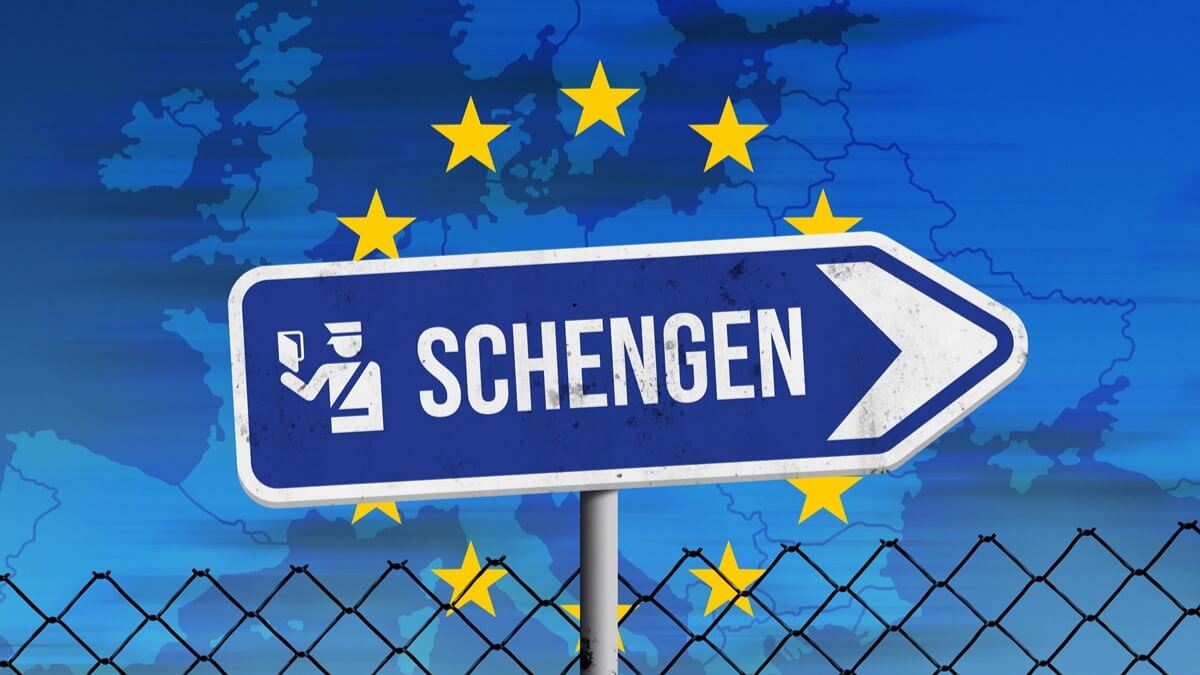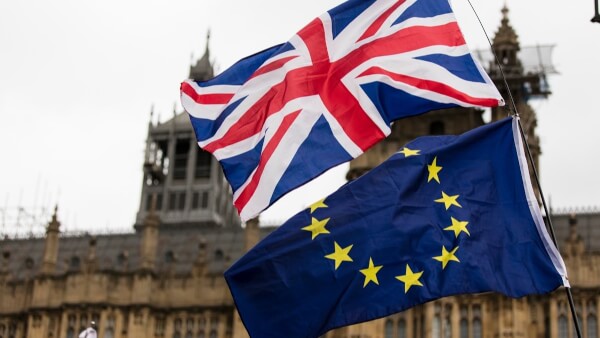Difference between EES and ETIAS: Simple UK travel guide
A quick guide for UK citizens on EES and ETIAS including what they are, how they differ, and how to get ready for Europe’s new travel rules.

Since Brexit, travel to Europe for UK citizens isn't quite as simple as it used to be. One of the biggest changes is the '90/180 rule'. Understanding this rule is key to making sure your European adventures go off without a hitch.
This article will walk you through exactly what the rule is, how it affects you and how you can manage your travel money smartly with a Wise account.
The Schengen Area is a zone of 29 European countries that have passport-free travel at their mutual borders. For travel purposes, they act as a single jurisdiction.
The member countries are: Austria, Belgium, Bulgaria, Croatia, Czech Republic, Denmark, Estonia, Finland, France, Germany, Greece, Hungary, Iceland, Italy, Latvia, Liechtenstein, Lithuania, Luxembourg, Malta, Netherlands, Norway, Poland, Portugal, Romania, Slovakia, Slovenia, Spain, Sweden, and Switzerland.
It's important to remember that not all EU countries are in the Schengen Area (like Ireland and Cyprus), and some non-EU countries are (like Switzerland and Norway).1
As a UK citizen, you can travel to countries in the Schengen Area for up to 90 days in any 180-day period without a visa for tourism or business purposes. This is known as the 90/180 rule. You will still need a valid UK passport to travel.2
This is the part that often causes confusion. The 180-day period isn't fixed and is a rolling window.2
To check if you're compliant, you should look back at the last 180 days from your current date (or a planned date of entry/exit). Within that moving timeframe, you can't have been in the Schengen Area for more than 90 days.2
The days you enter and leave the Schengen Area count as full days.
The UK government suggests checking the date you plan to leave the Schengen area on your next trip and counting back 180 days to get the start of the 180 day period or using the dates stamped in your passport.2
However, the European Commission has an official online short stay border crossing calculator you can use to plan and track your trips. It's a handy way to ensure you don't accidentally overstay.3
Overstaying the 90-day limit can have serious consequences, which may include:4
It's always best to track your days carefully to avoid any issues.
Jumping between countries with different currencies can get expensive. But with Wise, you can manage your money easily and for low fees*, leaving you with more to spend on your trip.
Forget about poor exchange rates from airport kiosks or hidden bank fees. With the Wise card, you can spend in the local currency in over 150+ countries. It automatically converts your GBP into foreign currency at the mid-market exchange rate for a small, transparent fee*.
While you're planning your next trip, your money could be growing. With Wise Interest, you can earn a variable rate on the money you hold in GBP, EUR, and USD. You can invest for as little as £1, €1 or $1 and you can continue to send and spend your money**. Capital at risk. Growth not guaranteed.
Capital at risk. Growth not guaranteed. Wise Assets UK Ltd is authorised and regulated by the Financial Conduct Authority with registration number 839689. When facilitating access to Wise investment products, Wise Payments Ltd acts as an Introducer Appointed Representative of Wise Assets UK Ltd. Please be aware that we do not offer investment advice, and you may be liable for taxes on any earnings. If you’re uncertain, we urge you to seek professional advice. To find out more about the Funds, visit our website.
** Note: Access to invested funds mentioned comes with a limit of up to £10,000 for personal Wise customers and up to £100,000 for business customers.
Learn more about Wise Interest 💰
No. Time spent in EU countries that are not part of the Schengen zone, such as Ireland and Cyprus do not count towards your 90-day Schengen limit. These countries have their own separate immigration rules. As things can change, always check for the most up-to-date information before you travel.
The EU is introducing a new Entry/Exit System from October 2025. This will mean UK travellers will get their fingerprints and photo taken when first entering or leaving the Schengen area.2
ETIAS (European Travel Information and Authorisation System) is a new travel authorisation system for visa-exempt visitors, including UK citizens, travelling to the Schengen Area. It's expected to be introduced in late 2026. Once implemented, you'll need to apply online for an ETIAS before you travel. You can read more about it on the officialETIAS website.5
If you plan to stay longer than 90 days in a 180-day period, you will need to apply for a national visa for the specific country you wish to stay in. You should check the rules of that country on the UK government's foreign travel advice pages.
Sources used for this article:
1. European Commission - countries in the Schengen Area
2. Gov.uk - 90/180 rule, how to calculate and EES
3. European Commission - European Commission short stay calculator
4. EEAS - consequences of overstaying
5. Europa.eu - ETIAS
Sources last checked on 02-Sep-2025
*Please see terms of use and product availability for your region or visit Wise fees and pricing for the most up to date pricing and fee information.
This publication is provided for general information purposes and does not constitute legal, tax or other professional advice from Wise Payments Limited or its subsidiaries and its affiliates, and it is not intended as a substitute for obtaining advice from a financial advisor or any other professional.
We make no representations, warranties or guarantees, whether expressed or implied, that the content in the publication is accurate, complete or up to date.

A quick guide for UK citizens on EES and ETIAS including what they are, how they differ, and how to get ready for Europe’s new travel rules.

Find the best eSIM for your trip with our Nomad vs Airalo comparison. We break down features, pricing, and coverage to help you choose the right provider.

Looking for the best eSIM for your next trip? Our 2025 Saily vs Airalo comparison covers pricing, coverage, and features to help you choose the right provider.

Read our Breeze eSIM review to find out how it works, what packages are available and how you can activate it.

Read our Revolut eSIM review to find out how it works, what packages are available and how you can activate it.

Read our Ubigi eSIM review to find out how it works, what packages are available and how you can activate it.